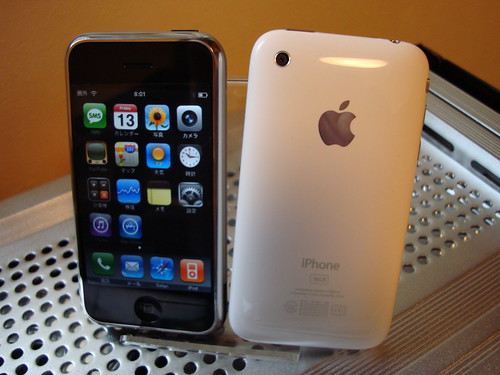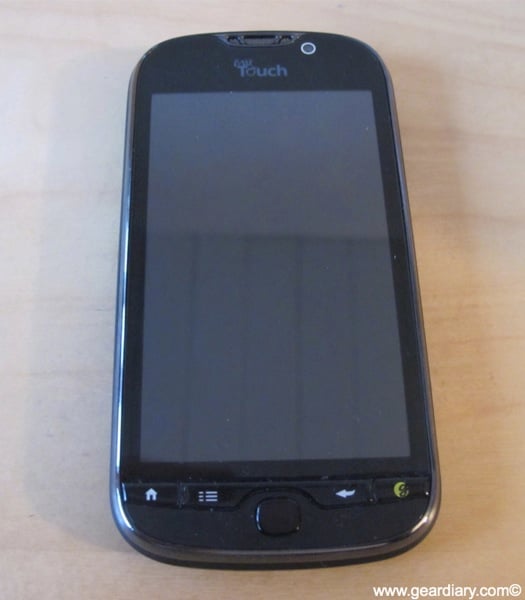You are here: Home » » Apple May Tap China Mobile's 600M Users With IPhone on 2G
Aug 31, 2011 7:10 pm
There are signs that Apple may soon allow China Mobile to distribute the iPhone, a deal that could give Apple a bigger share of China's mobile phone market. But Apple faces a tough choice in order to reach such a deal, say analysts: develop an iPhone specifically for China Mobile, which operates a 3G network incompatible with current models of the iPhone, or make iPhone buyers use the carrier's slower 2G network.
"It's possible the iPhones China Mobile will sell are meant for its 2G network," said C.K. Lu, an analyst with research firm Gartner.
China Mobile is the country's biggest network operator, with more than 600 million customers. Apple's current Chinese partner network, China Unicom, has around 183 million customers.
China Mobile has been talking with Apple about reselling the iPhone for some time. Last week, China Mobile chairman Wang Jianzhou gave an indication that the two parties were reaching an agreement when he said he had talked with Apple CEO Steve Jobs over the phone and in person about cooperation. Apple COO Tim Cook had also recently visited the carrier's office, according to a China Mobile spokeswoman. No agreement has yet been announced, however.
Even though China Mobile is not an official Apple reseller, the company already has 7.4 million iPhone users on its network, Wang said last week.
The success of the iPhone with China Mobile customers is all the more remarkable given that iPhones won't work on China Mobile's 3G network, which is based on China's own TD-SCDMA (Time Division Synchronous Code Division Multiple Access) standard, but are instead designed for the WCDMA 3G networks operated by most other carriers around the world. They do, however, work on the slower second-generation GSM mobile phone network that China Mobile operates.
Apple did develop a special version of the iPhone 4 for Verizon in the U.S., as that company not only uses a different 3G standard, but also has no GSM network.
The likelihood of Apple designing an iPhone for use on China Mobile's TD-SCDMA network is slim, according to Lu, the analyst. "I don't think Apple will want to use this immature technology," he said. "Unless China Mobile can make a deal with Apple that gives them a lot of money, I think it would be hard to see this phone come out soon."
Apple has a fall-back option that will let it target China Mobile customers while avoiding the cost of developing another new phone: China Mobile's second generation mobile network uses the GSM standard to carry phone calls, but also carries data using GPRS and the faster EDGE standard.
One China Mobile customer who is already using an iPhone on the 2G network is Tong Ga, a 28-year-old from the Chinese city of Dalian. He decided to use his iPhone 4 with China Mobile because he would be forced to change his phone number if he switched carriers.
While China Mobile's network has been slower, Tong said, "It is quite enough for checking some emails, weather and news. And 2G is very cheap."
Users like Tong are common in China, according to analysts. Among the country's 900 million mobile phone users, only about 85 million use a 3G network, according to carrier statistics. The rest use 2G networks, which are seen as more affordable and reliable, said Sun Peilin, an analyst with Beijing-based research firm Analysys International.
"There will be those users who buy Apple products, but only use it on a 2G network," he said. The result means fewer downloads off of Apple's App Store in China and mobile carriers making less money from data plans, he added.
But another factor holding back 3G adoption is China Mobile's use of the TD-SCDMA network standard, which is not widely adopted outside of the country.
As a result, Apple's iPhone and other popular smartphones are not built for the country's biggest network, putting China Mobile at a disadvantage compared to its smaller rival, according to analysts. China Unicom is currently the only official carrier of the iPhone in the country, and possesses a 3G network the device can operate on.
In response, China Mobile has been working with handset manufacturers to improve its smartphone offerings. In the case of Apple, so far the carrier has only publicly said future versions of the iPhone will support the carrier's 4G (fourth generation) network. But the earliest that such a phone could arrive would be in 2013, when China's 4G networks are projected to go online commercially, said Lu.
Apple's iPhone 4 has proven to be one of the hottest selling products in China ever since it was launched last September. Apple's share of the country's smartphone market has tripled from 4.2 percent in the third quarter of 2010 to 13.3 percent in the second quarter this year, putting it behind only Nokia and Samsung, according to research firm Gartner.
Smartphones, however, only cover make up about 22 to 27 percent of China's total mobile phone sales, according to different analysts. The majority of Chinese consumers still buy cheaper feature phones, Sun said.
"To hit the mass market, Apple could come out with a cheaper iPhone for China," he said. "This way they would have a chance to sell to lower-end users."
While Apple may still be scratching the surface of the Chinese market, the company reported a sixfold year-on-year increase in revenue in China for the second quarter. A major driver has been iPhone sales, which grew almost 250 percent for the first three months of 2011, when compared to the same period a year ago.
Part of the reason why Apple is seeing success in China is due to its status as a premium brand, said Daryl Chiam, an analyst with research firm Canalys. News of shops posing as real Apple stores in China have only underlined the growing consumer demand for the products, he said.
"If Apple brings up production of its products this may help it increase market share. But at the same time you have to think about the company as a status symbol," he said. "A mass market product could change this. So it's a double-edged sword."
Category:











